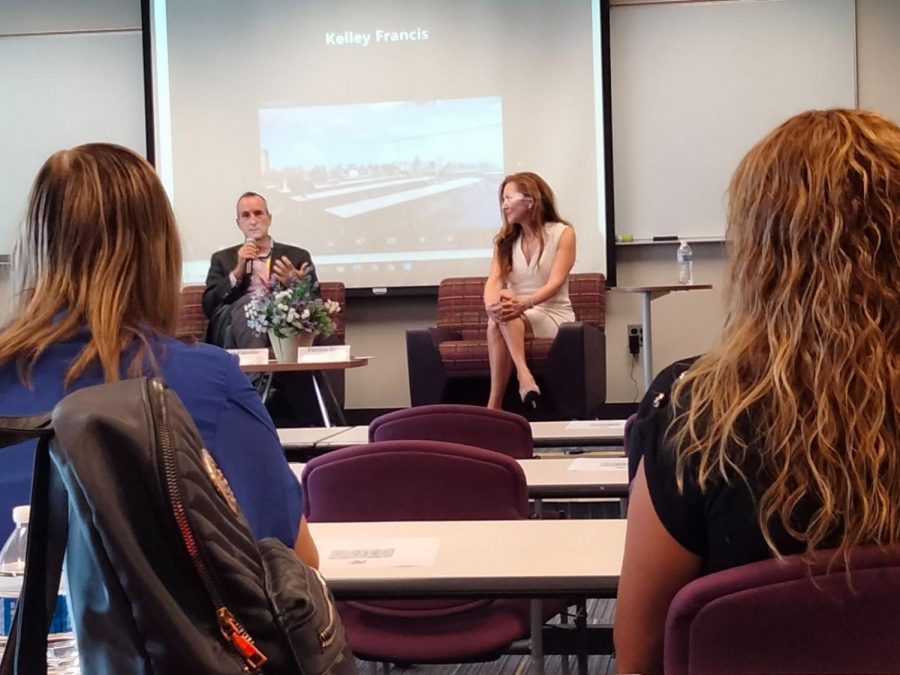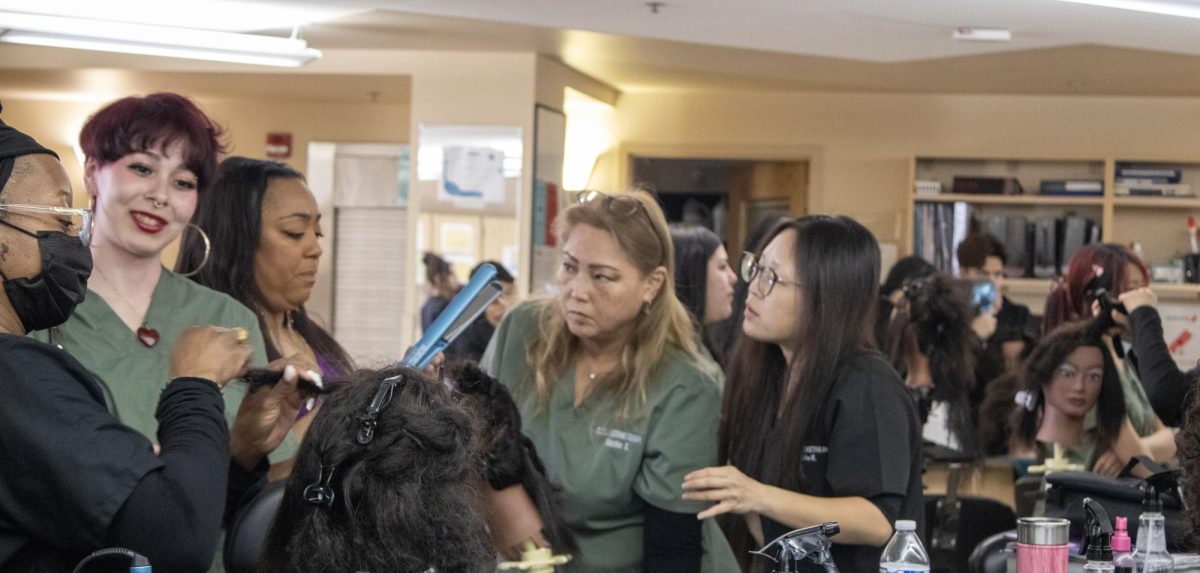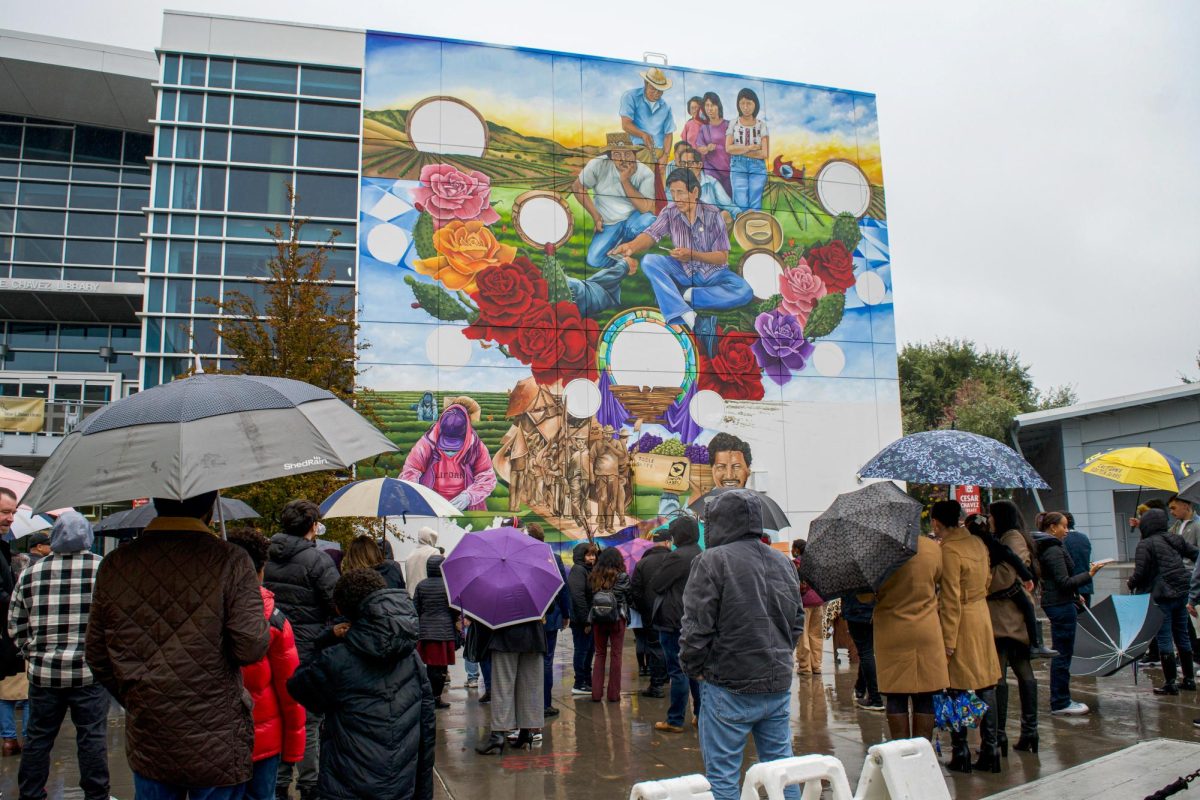A couple dozen students, faculty members and support program representatives poured into a fourth floor auditorium of the Technology Center on Tuesday, Oct. 11 to participate in the “Hispanic Talent in Tech” event.
Serving as part of SJCC’s Hispanic Heritage Month celebration, the event aimed to connect students looking to get their starts in the technology field connected to mentorships with industry professionals. The event was headlined by speakers Patricia Rios, a global director of information technology for KPMG as well as Jim Carrillo, who is the director of business application and development for the Santa Clara County’s Office of Education. The Department of Business & Workforce Development partnered with the Hispanic technology outreach organization HiTec to bring this event to campus.
“The thing that drew me into technology [was] the ability to solve problems,” Carrillo said early into the event.
Carrillo, a lifetime California resident who himself is a product of the community college system, spoke about internships, describing them as a “free opportunity to fail.” He also shared personal anecdotes of flunking four classes during his freshman year of college and the feeling he has now that he “had all the resources, but didn’t take advantage of them,” flipping them from abject failures to an example of how anyone can make it in the industry, even if they struggle early.
“Technology is the easiest field to succeed in, ” he reassured the audience.
Carillos’ story is one half of the American experience, one of hard work, perseverance, and learning to use the system to your benefit.
The other half would be the path of Patricia Rios.
Coming from Colombia, she brought the necessary immigrant verve, one that any telling of success in this country could never be whole without. She spoke of getting into tech because of a desire to be on “the bleeding edge” and succeeding despite never having seen a computer before going to university. Being a woman and a person of color, she said she was aware of the challenges she had to face and overcome in the industry.
“Throughout my career, I’ve really had to push to get promotions and salary increases,” Rios said. On the subject of internships, she emphasized their benefits of being good chances to “build a network and apply your skills,” Rios said. She later shared that she felt “blessed to have many mentors.”
The Times interviewed both speakers and they both spoke about their different, but still optimistic views of the technology industry.
Carrilo, 53, made note of his privileged identity as a white, cisgender male. He said that his goal was to “eliminate discrimination” in terms of representation, and that major progress is being made in the industry, albeit at a slow pace. Remembering earlier years, he brought up how he previously had a binary conception of queerness: “You only had two words, gay or straight,” Carrilo said. He contrasted that with the present, noting the acceptance of different sexualities and gender identities. Carrilo – who took a lot of pride in having a transgender son – had the opinion that if “someone of [his] age” can understand these new and radical identities, anyone can, he said.
Rios said that she feels all diversity is valuable, whether that be of gender, age, sexuality or race, and that she thinks that diversity in the workplace “improves service” by giving voice to those of different demographics and needs. She said that progress in the industry regarding diversity has been “slower than we think,” saying that some companies feel there previously has been a lack of a pipeline for those of different identities to get into tech. However, she pointed to colleges starting to more strongly encourage minority students to pursue STEM, and said that trends like that give her hope going forward.
She also had a personal message for all aspiring technology professionals of minority backgrounds.
“Don’t give up! Have goals and be persistent,” Rios said.







